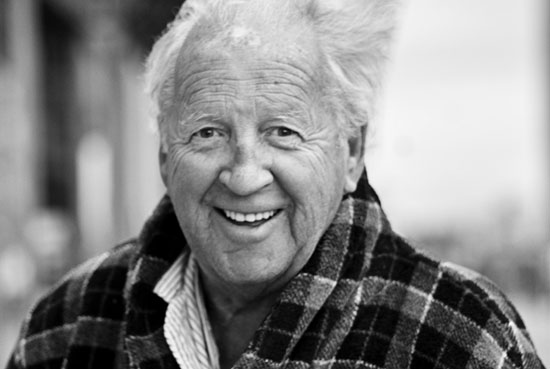Why is our body shrinking as we age?
Everyone knows that when we get older, our bodies are lower. But what many people do not know is that height is not the only thing lost due to aging, but the heart, bones and other parts are also 'shrunken' . Of course, such changes often go hand in hand with health problems. American scientists have shown this connection as well as a way to help you protect your body.
1. Backbone
From the age of 40 onwards, most people lose at least 1cm in height after every decade. However, women lose more height than men due to the estrogen level of female sex hormones, help protect bone health, and decrease rapidly after menopause.
In fact, after age 35, our bones begin to lose calcium and essential minerals. As the body's ability to reinforce bone structure slows, bone density decreases, making it more brittle and brittle, called osteoporosis. Reducing height may be a warning sign of osteoporosis in women or heart disease in men.
- How to prevent: To prevent osteoporosis, you should have a healthy and calcium-rich diet, including dairy products and green leafy vegetables, increase absorption of vitamin D by bright sun exposure, regular exercise Exercise and stay away from alcohol and tobacco.
2. Tim
From middle age, heart muscle starts to shrink at an average of 0.3g / year, affecting the ability to pump blood throughout the body. Experts at Johns Hopkins University (USA) found that the heart took longer for each cycle of contraction, about 2 to 5% per year, although the amount of blood pumped out of the heart decreased by about 9 milliliters per year. . This can cause high blood pressure, leading to many heart diseases.

- Prevention: Like muscles, the heart will be healthy and not shrink if trained. Do heart-healthy exercises including walking, climbing stairs, doing housework, dancing or using indoor exercise machines.
3. Genital organs
The sex organs of both sexes shrink with age.
- Prevention: For men, a low-fat diet is not only good for the heart but also good for life. In both sexes, regular sexual activity can slow down the reproductive process because this activity improves blood flow and oxygen to the above organs.
4. The brain
At birth, our brain weighs about 400g and fully develops until adulthood is 1.4kg. From age 20 onwards, the brain begins to shrink, about 10-15% until the end of life. Many studies show that this process is faster if the employer has a habit of smoking, drinking alcohol or being overweight, high cholesterol or having diabetes. The frontal and temporal parts of the brain, which control thinking, planning and memory, are minimized.
- Prevention: Keeping your brain active is the most important thing, followed by getting enough sleep and avoiding abusing alcoholic drinks.
5. Face
Recent studies show that the facial bones are actually shrinking as we age, starting from the skin and muscles around them. Jaw bone is the most wasted part, if you lose a tooth, the jaw bone that supports it will narrow. According to experts, women have facial atrophy at earlier age, more than 40 years old, compared with 50-55 years of age for men.
- How to prevent: Good dental care can help prevent tooth decay and tooth loss, which causes facial bones to shrink.
6. Bladder
At the age of 25, the average person's bladder can contain about 2 cups of liquid, but by age 65, its capacity is reduced to only half, its function is therefore reduced.
- Precautions: Avoid abuse of drinks containing caffeine or alcohol because they can stimulate the bladder. Regular training of the pelvic area to enhance bladder control.
7. Thymus
The thymus is a small part above the heart, which produces T cells that protect the body from infection. The thymus develops throughout childhood and reaches the size of an apple, but begins to shrink after puberty, until it is equal to a ball when we grow up. That's why the older person's immune system weakens, making them more susceptible to disease, especially cancer.
- How to prevent it: Initial research shows that a low calorie diet can help boost the immune system.
- Strange reactions of the body with the cold
- Scientists discovered: The Moon is shrinking
- Demonstration mutant shrinks the body to wear a 3-year-old shirt
- The moon is shrinking
- Antarctic ozone holes are shrinking
- Depression will put you at risk for brain shrinkage
- Ozone holes in Antarctica show signs of shrinking
- Mercury shrinks faster than expected
- The ozone hole can be healed in 2070
- The hole in the Antarctic ozone layer is shrinking
- Amazing discovery of the human body
- The simplest ways of body toxicity
 Green tea cleans teeth better than mouthwash?
Green tea cleans teeth better than mouthwash? Death kiss: This is why you should not let anyone kiss your baby's lips
Death kiss: This is why you should not let anyone kiss your baby's lips What is salmonellosis?
What is salmonellosis? Caution should be exercised when using aloe vera through eating and drinking
Caution should be exercised when using aloe vera through eating and drinking